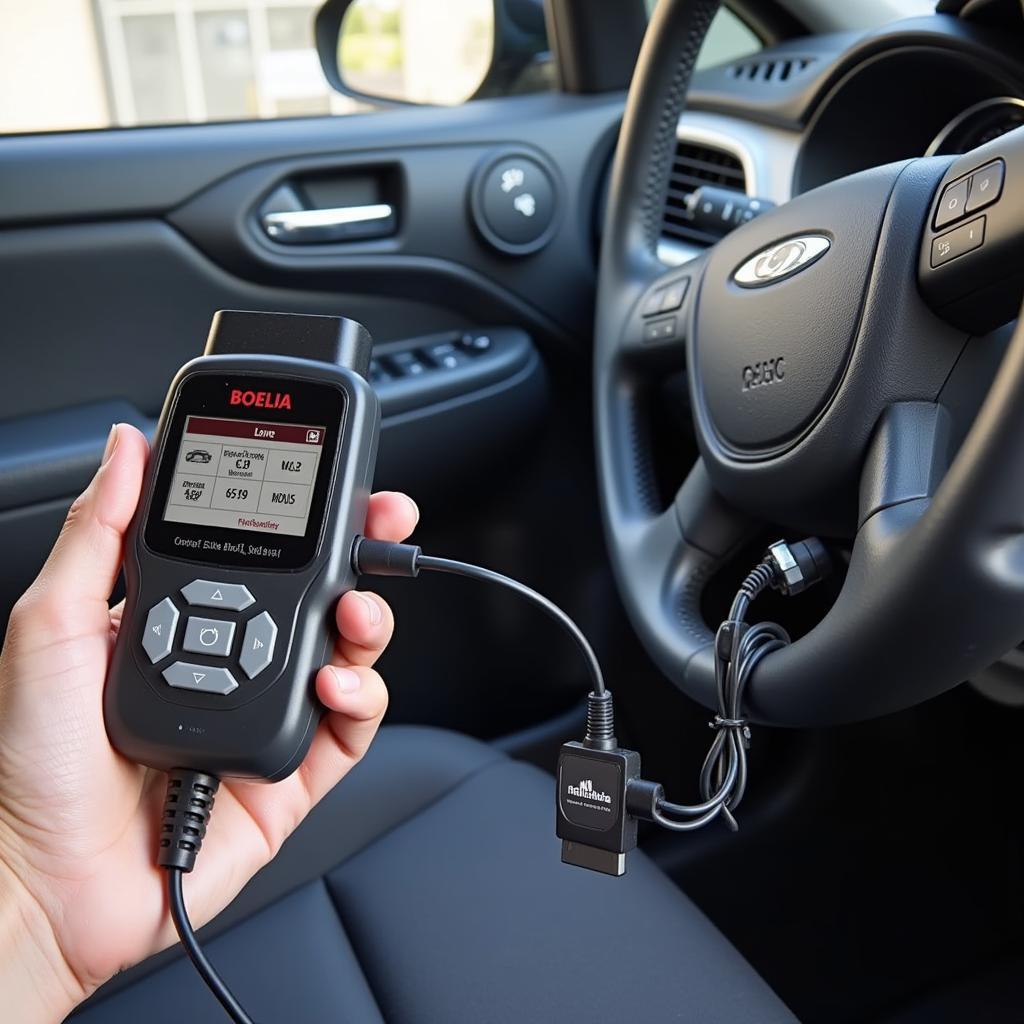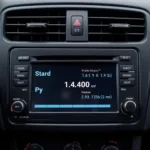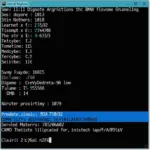You’re knee-deep in engine trouble, your trusty OBD1 car is throwing a fit, and you’re wondering if your trusty OBD2 scanner can be the hero of the day. Can it really decipher those older codes? Let’s dive into the world of OBD, explore the differences between OBD1 and OBD2, and see if there’s a way to bridge the gap.
Understanding the OBD System Evolution
Before we answer the burning question, let’s rewind a bit. The On-Board Diagnostics (OBD) system is essentially your car’s way of telling you (or your mechanic) what’s going on under the hood.
Think of OBD1 as the original language your car spoke, while OBD2 is the more modern dialect. OBD1 systems, common in vehicles manufactured before 1996, were less standardized. Each manufacturer had its own unique connectors, diagnostic trouble codes (DTCs), and methods for retrieving them. Imagine needing a different dictionary to understand every car brand!
OBD2, introduced in 1996, brought some much-needed order to the automotive world. It standardized the diagnostic connector (that familiar 16-pin port under your dashboard), communication protocols, and DTCs. Now, with a single OBD2 scanner, you can access engine data from a wide range of vehicles.
The Compatibility Conundrum
Now, back to our main question: can an OBD2 scanner understand what your OBD1 car is saying? The short answer is: not directly.
OBD1 and OBD2 systems have different communication protocols, connector types, and DTC formats. It’s like trying to read a Spanish book with a French dictionary – the words might look similar, but the meaning gets lost in translation.
Bridging the Gap: Options for Reading OBD1 Codes
Don’t despair, though! There are a few ways to access those OBD1 codes:
- Manufacturer-Specific Scanners: The most reliable option for reading OBD1 codes is to use a scanner specifically designed for your vehicle’s make and model. These scanners speak your car’s unique language and can provide detailed diagnostic information.
- OBD1 to OBD2 Adapters: Some adapters in the market can convert the OBD1 connector to an OBD2 connector. However, these adapters might not always be reliable and may only provide limited information.
- DIY Methods (With Caution): For the truly adventurous, some OBD1 systems allow code retrieval through DIY methods, such as jumper wires or LED lights. However, these methods require a good understanding of your vehicle’s wiring diagram and carry a risk of damaging the car’s electrical system if not done correctly.
 OBD2 Scanner with Adapter
OBD2 Scanner with Adapter
When in Doubt, Consult the Pros
While understanding the basics of OBD systems can empower you as a car owner, remember that professional mechanics have the expertise and specialized tools to diagnose and repair complex car issues accurately.
If your OBD1 car is acting up, consider reaching out to a trusted mechanic. They can quickly identify the problem and recommend the best course of action, saving you time, effort, and potential headaches in the long run.
FAQs
Q1: Can I use any OBD2 scanner with an OBD1 adapter?
Not necessarily. While some scanners might work with an adapter, compatibility varies. It’s crucial to check the scanner’s specifications and ensure it supports OBD1 protocols even when used with an adapter.
Q2: Are OBD1 codes the same as OBD2 codes?
No, OBD1 and OBD2 codes use different formats and interpretations. Even if you manage to retrieve OBD1 codes using an adapter, you’ll need to refer to your vehicle’s specific repair manual or an online database to understand their meaning.
Q3: My car was manufactured in 1995. Is it OBD1 or OBD2?
While OBD2 became mandatory for vehicles sold in the U.S. starting in 1996, some manufacturers implemented it earlier. Check your owner’s manual or look for the OBD port under your dashboard. A 16-pin trapezoidal port usually indicates OBD2.
Need More Help?
Still have questions about OBD scanners, car diagnostics, or anything automotive? We’re here to help! Contact our team of experts via WhatsApp at +1(641)206-8880 or email us at [email protected]. We offer 24/7 support to help you navigate the world of car maintenance with confidence.
You can also find more helpful resources on our website, including:
- Is a 95 Civic OBD2?
- Blue Point YA3120 CANOBD2&1 Tool Kit OBD1 OBD2 Scanner
- OBD2 Pinout Civic
- OBD2 Scanner for GMC
- OBD2 to J1939 Adapter with OBD2 Pass Through
Remember, understanding your car’s diagnostic system is key to ensuring its longevity and your peace of mind on the road.

